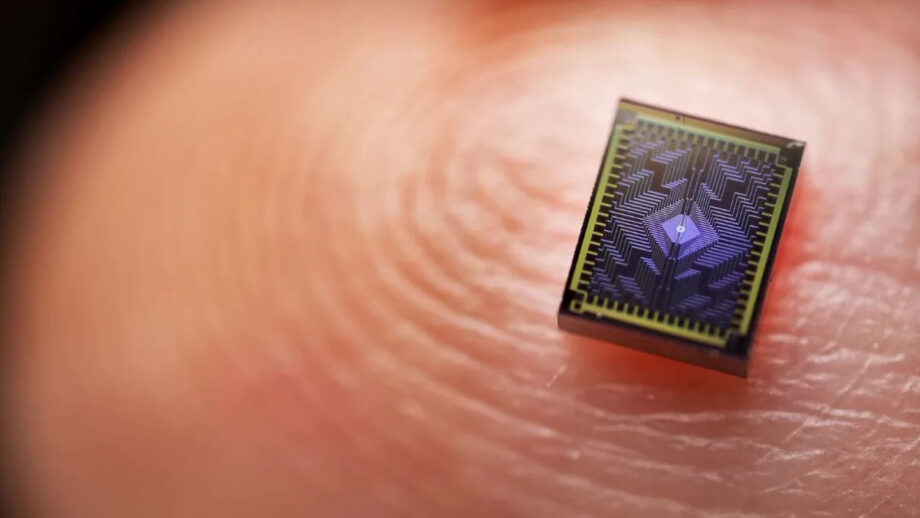- The Biden Administration has opened applications for $285 million in CHIPS Act funding for an institute to develop digital twins for the chip manufacturing industry, aiming to boost national security and reduce dependence on global supply chains.
- Digital twins are advanced software models of hardware, such as processors, that can save time, money, and increase efficiency by allowing engineers to anticipate problems and adjust designs before manufacturing begins.
- The funding is part of the 2022 CHIPS Act’s $39 billion allocated for semiconductor R&D, with a focus on accelerating U.S. chip development and manufacturing concepts through digital twin-based research.
- The institute’s funds will support basic operations, research on digital twins, shared digital facilities, and workforce training to establish the U.S. as a leader in semiconductor technology and ensure economic independence and supply chain control.
- The Biden Administration’s CHIPS program aims to spark homegrown silicon innovation, avoid supply chain disruptions, and enhance national security by investing in cutting-edge chip manufacturing technologies.
The Biden Administration’s $285 Million Push for Digital Twin Chip Research Institute
In a significant move to bolster the semiconductor industry, the Biden Administration has announced the availability of $285 million in funding through the CHIPS Act for the establishment of an institute focused on developing digital twin chips. This investment is part of a broader effort to enhance silicon design and engineering processes, with the overarching goal of fortifying national security and reducing reliance on global supply chains, particularly in comparison to China.
Digital twins, in the context of chip manufacturing, refer to sophisticated software models that mirror the physical attributes of hardware components, such as processors. These virtual replicas offer engineers the ability to preemptively address potential issues, refine designs, and optimize efficiency before the manufacturing phase commences. Notably, industries beyond chip manufacturing, including automotive and space exploration (utilized for satellite simulations), have also harnessed the power of digital twins to drive innovation and streamline operations.
The Department of Commerce underscores the pivotal role of artificial intelligence (AI) in advancing digital twin-based research. By leveraging emerging technologies like AI, the development of new chip design concepts can be accelerated, leading to substantial cost reductions across various facets of chip production, including capacity planning, production optimization, facility enhancements, and real-time process adjustments.
Related Video

Implications of the Funding on Semiconductor Research and Development
The infusion of $285 million into the digital twin chip research institute forms part of the broader 2022 CHIPS Act, which has allocated a staggering $39 billion towards semiconductor research and development. Prior to this initiative, the US government had already committed substantial sums under the CHIPS Act to incentivize semiconductor manufacturing, with investments directed towards industry giants such as Samsung, TSMC, Micron, and Intel.
Recognizing the critical importance of fostering domestic innovation in silicon technologies, the Biden Administration views research and development funding as a linchpin in establishing a robust semiconductor ecosystem within the US. By nurturing homegrown talent and capabilities, the administration aims to mitigate scenarios where disruptions in the supply chain could jeopardize the economy and national security.
The allocated funds for the digital twin chip research institute will encompass various areas, including foundational operations, research endeavors related to digital twins, establishment and maintenance of shared digital infrastructure, and training programs to equip the future workforce with the requisite skills. By investing in cutting-edge technologies and nurturing a pipeline of skilled professionals, the administration seeks to ensure that the US remains at the forefront of semiconductor innovation and maintains autonomy over critical technological capabilities.
Envisioning the Future of Semiconductor Industry with Digital Twin Technology
The advent of digital twin technology in the semiconductor industry heralds a new era of innovation and efficiency. By harnessing the power of virtual replicas to simulate and optimize chip designs, manufacturers stand to benefit from accelerated development cycles, reduced costs, and enhanced product quality. The ability to preemptively identify and address potential bottlenecks or inefficiencies in the design phase can lead to significant time and cost savings throughout the manufacturing process.
Moreover, the integration of artificial intelligence into digital twin-based research opens up avenues for further optimization and automation. AI algorithms can analyze vast datasets, identify patterns, and suggest optimizations that human engineers may overlook, thereby streamlining the design and production of cutting-edge semiconductor chips. As the semiconductor industry continues to evolve at a rapid pace, the synergy between digital twin technology and AI promises to revolutionize the way chips are conceptualized, developed, and manufactured.
Building Resilience and Technological Sovereignty Through Digital Twin Chip Innovation
The Biden Administration’s emphasis on investing in digital twin chip research underscores the broader imperative of ensuring technological sovereignty and resilience in critical industries. By nurturing a robust ecosystem of semiconductor innovation domestically, the US can reduce its dependence on foreign suppliers and mitigate the risks associated with geopolitical tensions or supply chain disruptions.
Furthermore, the integration of digital twin technology into chip manufacturing not only enhances operational efficiency and product quality but also reinforces national security imperatives. With an increasing reliance on advanced technologies in defense applications and critical infrastructure, maintaining control over semiconductor design and production processes is crucial to safeguarding vital national interests.
The Biden Administration’s $285 million funding initiative for the digital twin chip research institute represents a pivotal step towards establishing the US as a global leader in semiconductor innovation. By leveraging cutting-edge technologies, fostering homegrown talent, and prioritizing national security considerations, the administration aims to chart a course towards a more resilient and technologically sovereign future for the semiconductor industry.
Links to additional Resources: